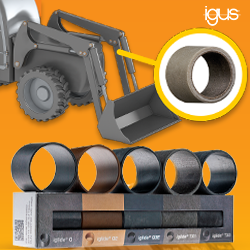Phoenix Contact Offers Training Opportunities Through New Virtual Technology Center
Phoenix Contact offers hands-on remote learning
Middletown, Pa. - Phoenix Contact has opened its Virtual Technology Center (VTC) to customers. The VTC offers a hands-on training experience from the convenience of the customer's location, by providing remote access and the availability and control of physical hardware at the company's Middletown, Pa., location.
Phoenix Contact offers classes every month for different applications. Sessions last between one and four hours. All customers may register to take any of the classes offered.
At the specified class time, customers can connect to the Phoenix Contact server to engage in training from Phoenix Contact application experts. The experts guide customers through the steps and tips needed to operate Phoenix Contact products and software.
Class topics include safety, Ethernet, routing/firewall, VPNs and several levels of training on Phoenix Contact's PC Worx software. The Virtual Technology Center has five personal, fully interactive workstations, which include component panels for customers to create real-life scenarios using Phoenix Contact products. The stations also include mobile webcams which can travel along the panels for remote-access training.
Phoenix Contact offers all introductory classes free of charge to U.S.-based customers. For more information about the class schedule, or to sign up for classes, visit www.phoenixcontact.com/VTC.
About Phoenix Contact
Phoenix Contact develops and manufactures industrial electrical and electronic technology products that power, protect, connect and automate systems and equipment for a wide range of industries. Phoenix Contact GmbH & Co. KG, Blomberg, Germany, operates 50 international subsidiaries, including Phoenix Contact USA in Middletown, Pa.
Featured Product

igus® - Free heavy-duty plastic bearings sample box
The iglide® heavy-duty sample box provides a selection of five unique iglide bearings, each suitable for use in heavy-duty equipment due to their self-lubricating, dirt-resistant properties. Each bearing material boasts unique benefits and is best suited for different application conditions, though each can withstand surface pressures of at least 11,603 psi at 68°F.
